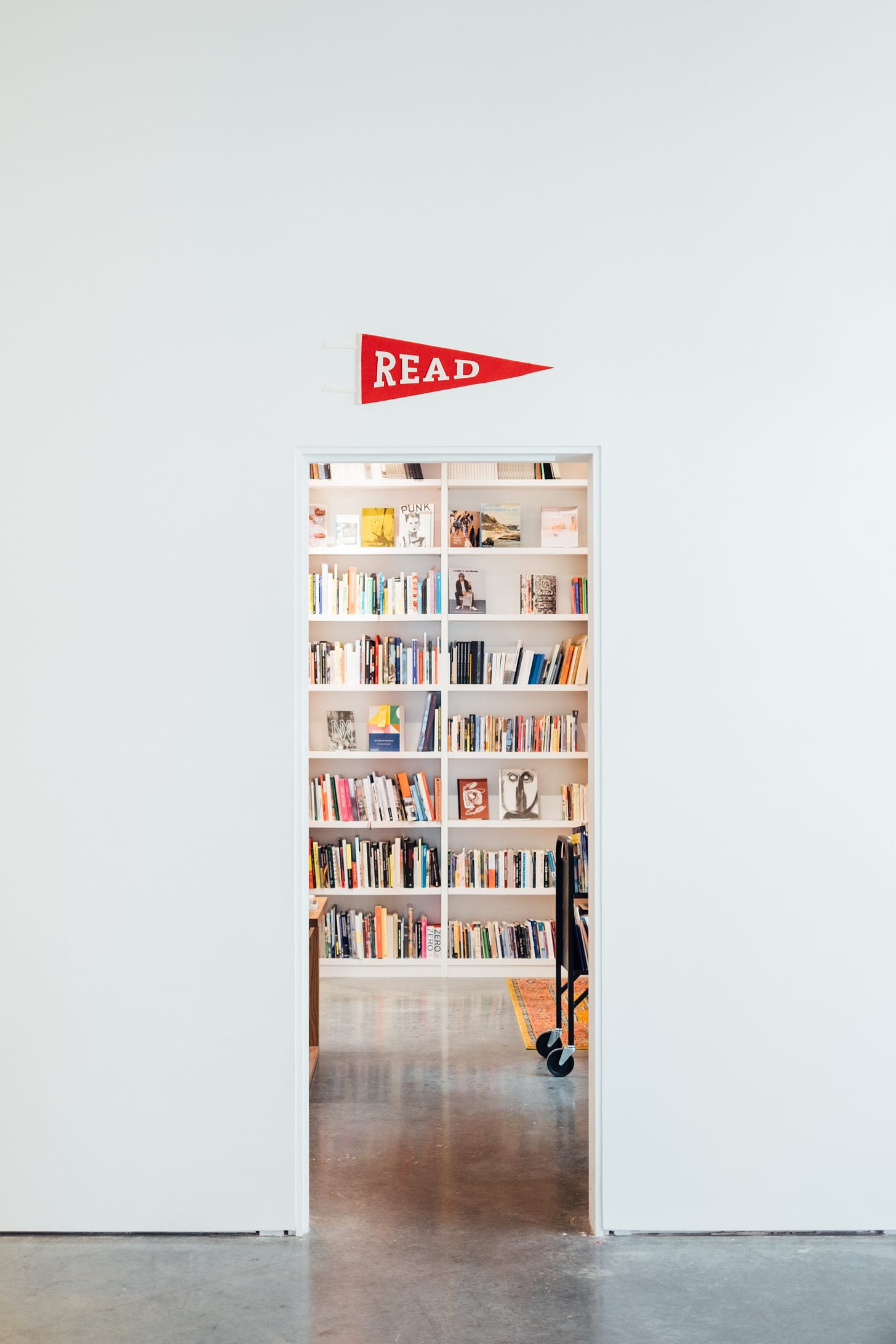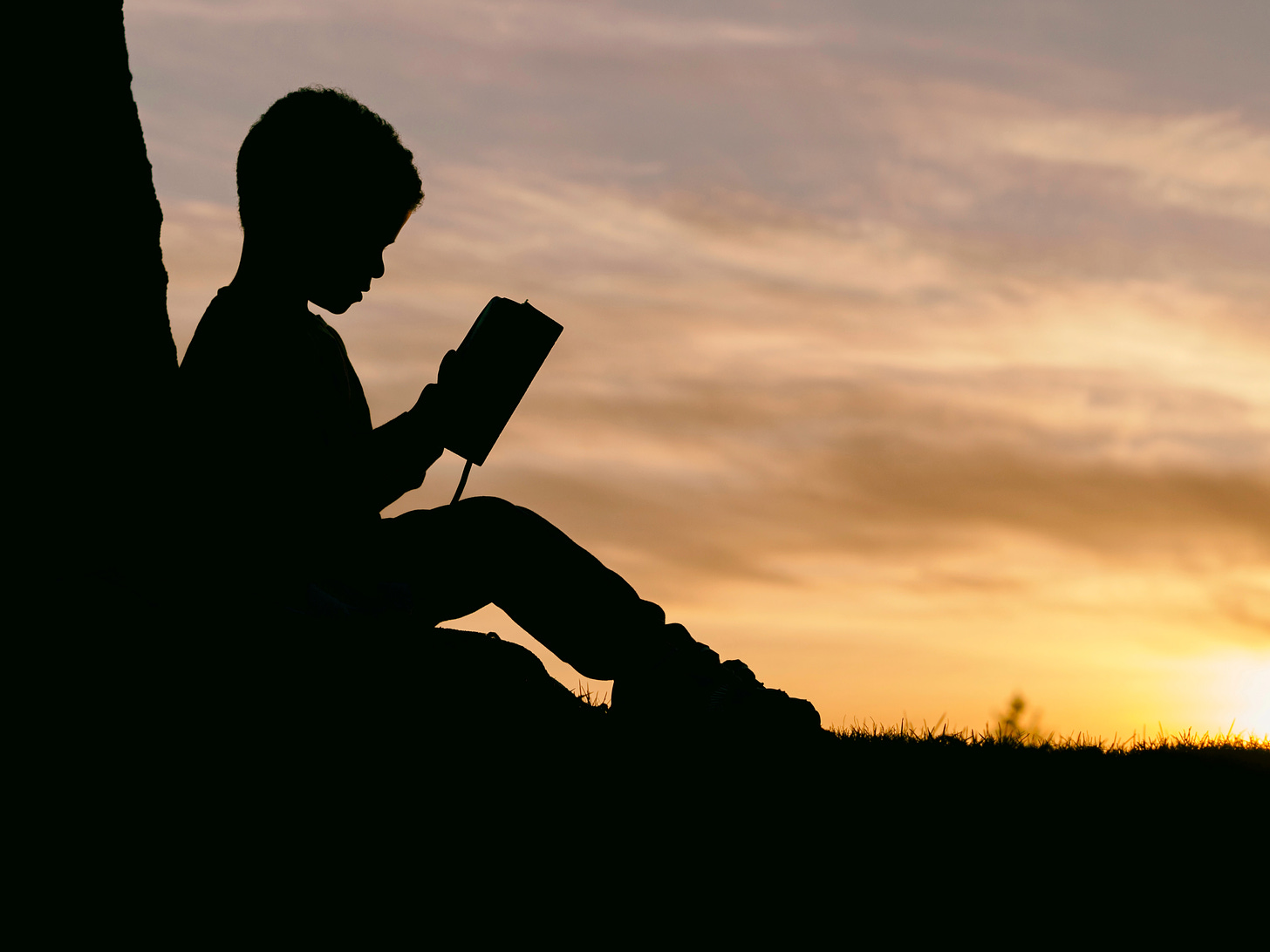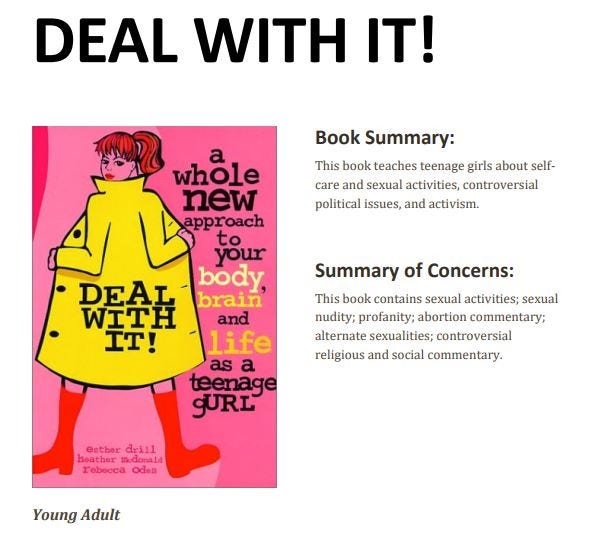NOTE: There are lots of quotes in this article. All bold type is added by me. Also note that some of the links are not appropriate for children.
Stop the Cricket Clock!* Board Members Respond
*See Part 2 of this series. And here is Part 1.
Charlie Schneider
Thank you to SDMA Board President, Charlie Schneider, for submitting the following statement for publication. Schneider is one of the candidates on the ballot Tuesday.
“I’d like to respond to “What is in those Library books”, as a board member I need to say that the opinions expressed herein are mine and only mine, not those of the board.
First, I want to be very clear that I will never vote to ban a book. That is not a place where we want to go as a society or district. So, if that’s where this ends up I will not work in favor of this effort.
Having said that though, I think there are many things that can be done short of banning books. We must work to ensure that our students have access to age-appropriate materials. There is a process to be followed here to gain input from the entire community, then act as a board.
So, the board must first come to an agreement on policy and then direct the administration to implement the policy and rules that the board approves. I do believe that this is something that we as a community and district can come to an agreement on. However, because I am just one board member, I will stop there.”
— Charlie Schneider 4/1/23

Abe Smith
Board Member Abe Smith responded as well. He brought up an interesting issue that I would like to speak to today. This is a quote from his email.
“From my perspective, the main thing that has been missing is a realistic view of how students use the library, and how professional librarians and teachers (reading specialists, English teachers, history teachers, etc) help students find materials.
The library is not some wild wasteland full of lions and jackals hiding behind bookshelves.
It is a caring and fun place, where students are encouraged and guided toward a life of reading.
As it happens, the school is full of trained adults whose entire job is to help students learn things in an age-appropriate way.
For example, it is unreasonable to call-out the thorough online catalog system, as if material there simply jumps into the minds of young students.
I promise you, no 3rd or 4th grader has ever scrolled through a list of 300-page ebooks, which are several years beyond their reading level and have no pictures or superheroes or Pokemon at all, to find a short passage that they won't even comprehend.” — Abe Smith 3/28/23
My Thoughts
How do books find your child?
I have heard it said that those explicit books really are not being checked out very much. And I have heard it said that while they appear to be available at the elementary school level, that the young students really do not have access to those books. These are comments I have received second or third hand and they may or may not be true.
Consider this book that was recently reviewed by BookLooks.org. It is called Sex in the Library: A Guide to Sexual Content in Teen Literature by Mary Jo Heller and Aarene Storms. Here is an excerpt.
“Our Sex in the Library presentation began because of an incident in 2001: Mary Jo, the librarian at Einstein Middle School, started it. She bought a copy of Deal With It: A Whole New Approach to Your Body, Brain, and Life as a gURL by Esther Drill for her middle school library collection. Deal With IT was on the 2001 Quick Pick list- a list of books that are quick to pick, quick to read- issued by the American Library Association. Perfect springtime reading for seventh and eighth graders, Mary Jo thought. …Then Mary Jo got to page 88, which deals with oral sex. That's where her internal alarms began to sound. The book contained, she felt, possibly a little too much information for seventh and eighth graders. …So, Mary Jo pulled the book out of the school library and called Aarene, so she could buy two copies for the public library collection instead. Deal With It is a terrific book, full of really pertinent information in an appealing layout that invites reading. Libraries are all about getting information to the students, and there are some teens who need most of the information in this book. …The public library is the perfect vehicle for getting that particular information to the students, but the school library is not. The incident got us thinking: Maybe there are some other books we should be looking at that we could "share," so that we can get those appropriate-but-toocontroversial-for-school books into the hands of the students who need them.” — from page ix of Sex in the Library
“. . .students who need them.” I wonder what kind of student NEEDS to read Deal With It?
Books as Medicine
I have had some GREAT conversations with liberals lately about the porn in the schools. Some of the material we are seeing now is very dark, including stories about the rape of minors. An idea I keep hearing is that children who have experienced dark, traumatic things, or maybe have been raped, could find healing by reading about someone else’s similar experience.
Of course what “heals” one student might totally traumatize another. Maybe it could cause a PTSD attack. There are big emotional consequences for handing a child who has been raped a book so graphically describing another child being raped. That is the sort of “medicine” that should only be administered by a psychology professional with the knowledge and approval of the parents.
Because who is going to be up all night dealing with the consequences of that child’s trauma? Not a school librarian.
Another underlying idea is that parents are the problem. Maybe a parent IS raping or abusing a child. Teachers, school counselors, etc. are mandatory reporters. There are procedures for that unusual circumstance. That is how that situation should be dealt with, not by a well-meaning adult at school slipping a book like that to a student.
Let’s go back to the idea that these books are floating around the schools generally, but “not available” to young students. I can agree with Smith’s statement that these books may not be leaping out at elementary-age students who are generally not interested. I fear, though, that they are accessible to counselors and teachers and librarians for sharing with targeted children like a doctor would issue a prescription, but without parental knowledge or consent.

In Closing
Please remember to vote Tuesday.
View your ballot at myvote.wi.gov.
Local blogger, Laurie Christianson, did a deep dive into the referendums if you want to read her analysis.




